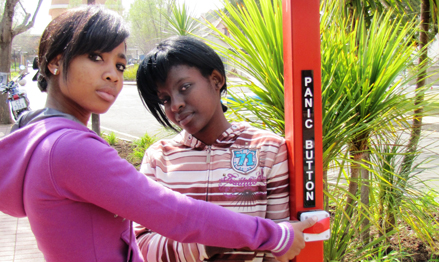Latest News Archive
Please select Category, Year, and then Month to display items
12 January 2024
|
Story Nonsindiswe Qwabe
|
Photo Sonia Small
 Since joining the UFS in 2008, Dr Grey Magaiza has worked extensively on approaches that can foster the socio-economic transformation of societies.
Since joining the UFS in 2008, Dr Grey Magaiza has worked extensively on approaches that can foster the socio-economic transformation of societies.
“The future should be one where communities can decide on their development agenda and futures. That’s the most important for me.” Dr Grey Magaiza, Deputy Director of the Centre for Gender and Africa Studies (CGAS) and Head of the Community Development programme on the Qwaqwa Campus, is passionate about capacitating communities to be agents of change and advancement. His vision for the future emphasises the empowerment of communities to take charge of their development by actively participating in decision making and the implementation of development projects that can improve their lives.
Since joining the UFS in 2008, Dr Magaiza has worked extensively on approaches that can foster the socio-economic transformation of societies. Over the years, he has crafted his research speciality into one that he is most proud of – being an interdisciplinary scientist immersed in the development of communities.
“I’m in a fortunate position of researching what I like. I say ‘fortunate’, because I’ve taken the time to understand what I’m passionate about, which is the overall field of rural livelihoods and livelihood futures – in short, community development. My research starts from an engaged university, understanding the elements that a university must use to enhance transformation and relevance to its immediate community in terms of development.”
One of the ways he has done this is by looking at social entrepreneurship as a development approach for young people in a rural setting. Through workshops with non-profit and civic organisations in Qwaqwa, Dr Magaiza has been helping these organisations to map out their needs and actively meet them through the involvement and support of external role players.
“We understand that communities are part of the national development agenda, but even that national agenda respects community knowledge and intentions and allows communities to shape their identity. A critical enabler of this is community organising. You bring back the capacity in communities to have dialogues on issues affecting them as spaces for engagement, knowledge exchange, and for people to just talk about their way forward.”
By enabling communities to define their development agenda, they can address their specific needs, challenges, and aspirations, he said. “When I look at livelihood futures, it’s quite an exciting aspect of my work – it’s like looking into a fortune tellers’ globe, because you’re not deciding for communities what they should do, but the communities themselves take those decisions.”
UFS a much safer place
2011-09-20
|

|
First-year students Chuma Nyiko (left) and Mabasa Teleni next to one of the red poles installed on our Bloemfontein Campus.
Photo: Amanda Tongha |
Students and staff at our Bloemfontein Campus can feel even safer, with several initiatives being put in place to ensure their safety.
The stop-and-search actions of the recent past, which are being carried out at all the main gates of our Bloemfontein Campus, seem to be successful, since car theft has decreased on the campus. Mr Willie Frankim, Head of Protection Services, says the stop-and-search actions are carried out sporadically, but have a definite effect on crime at the campus. Mr Frankim says only one vehicle has been stolen in the past two months as opposed to the many more that have been stolen in the past.
The message that safety is viewed in a serious light reaches as far as our university’s parking areas and walkways, which are being patrolled by security staff. Mr Frankim says a security officer is placed in all the large parking areas, while other personnel are distributed across the entire campus, especially at key areas, such as at the library and student centre.
Our university also recently installed more than 30 red poles across the entire campus. Each of these red poles is fitted with a panic button by means of which help can be summoned. Should a student or staff member feel unsafe, all they have to do is press the button and cameras, which are installed in the vicinity, will focus on the pole and Protection Services will send assistance. Twenty five of these poles are already working and ten more still have to be activated.
Students and staff can also phone Protection Services on 051 401 2911 if they feel uncomfortable about their safety. They can use this number, for example, to ask a security officer to accompany them to their car.